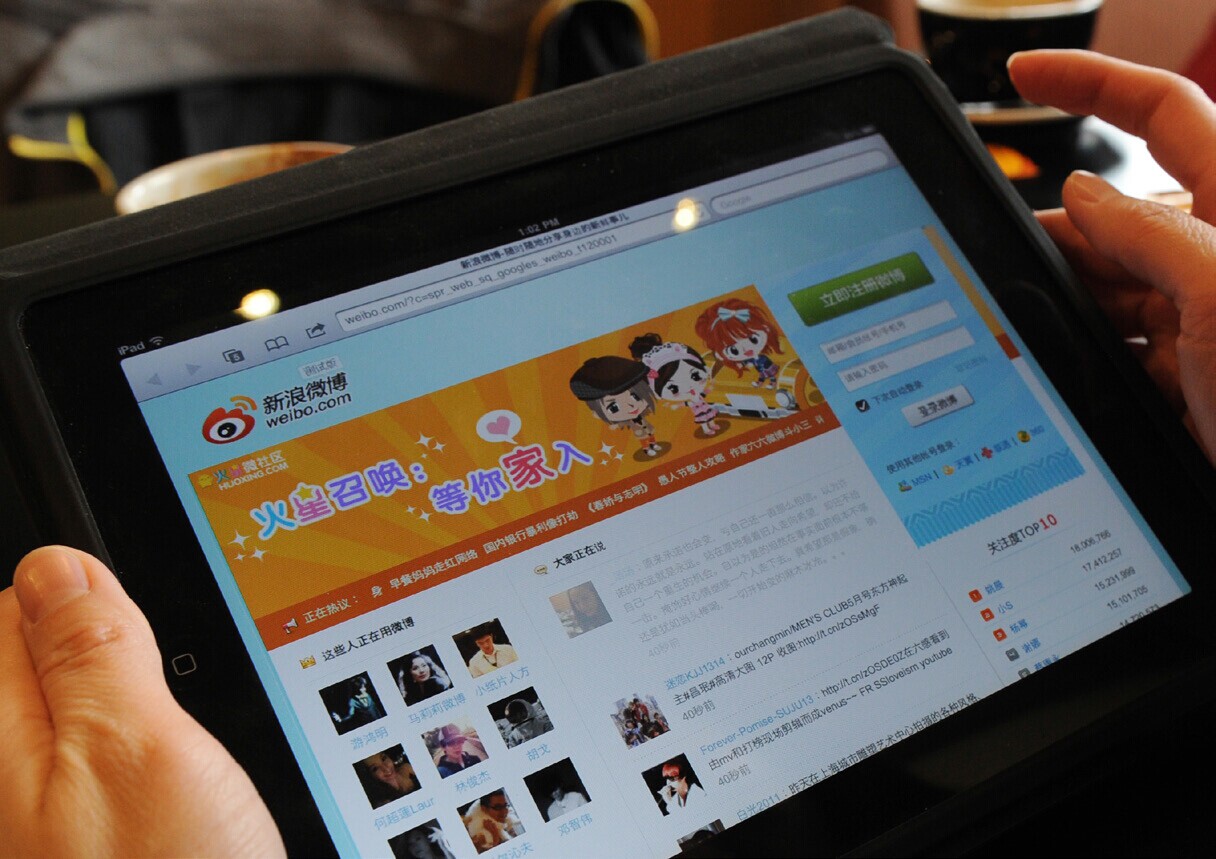Messaging culture needs rational thinking, humanistic spirit, scholars say

Weibo becomes one of the most popular microblogging platforms in China.
On Aug. 7, the State Internet Information Office held a news briefing to release the Interim Provisions for Management of Instant Communication Tools of Public Information Services. The provisions require that users of instant communication tool services register accounts only after their real names are verified. Service providers of instant communication tools that violate the provisions can be warned, limited in the right to release, suspended and even closed depending on the seriousness of violation.
In recent years, mobile apps and instant communication tools, such as Weibo (a social media like Twitter) and WeiChat (text message), have increasingly become an indispensable part of people’s lives, forming an online messaging culture-Wei Culture. At the same time, however, the rapid growth of mobile communication and Internet technology has not only facilitated cultural communication and exchange but also helped to promote pseudo-science, spread rumors and agitate the public.
"When we talk about the Wei era, we are not merely talking about an instant trend named after mobile internet technology and instant messaging platforms, but more about a significant transformation of social structure and practice, "said Gai Qizeng, associate fellow from the Institute for Cultural Studies at Capital Normal University.
Diversification of media outlets such as WeiChat and Weibo, has greatly enriched the means of communication. Scholars observed that while the Wei culture has expanded people’s cognition, it has also created fragmentation of people’s social lives, facilitating the creation and spread of rumors. We must be aware of its negative effects on society.
Zhang Yiwu, a professor from the Department of Chinese Language and Literature at Peking University, noted that everyone can release information on WeiChat in the absence of a "goal-keeper" in traditional media. Messages on Weibo are brief. Highlighting opinion rather than argumentation, they create an impression on people by appealing to emotion words rather than rational discussion. It is often the case that you see people making condemnations while objective and rational opinion is neglected and despised. Consequently, opinion in the virtual society becomes extreme, and people seldom have complicated and rational discussions.
When emotional remarks replace profound, independent thought, information under Wei culture is distorted and facts are increasingly vague. The effect as such small bits of false information can snowball into tremendously harmful rumors. After the Fukushima event in 2011, rumors spread that iodized salt could help people resist the effects of nuclear radiation. As a result, many people rushed to purchase this kind of salt and caused public fear.
Scholars we interviewed pointed out another disadvantage of Wei culture is that it has changed people’s habits with regard to reading and thinking. Traditional reading of long, in-depth articles is being replaced by fragmented skimming. For one thing, serious traditional mainstream culture, moral standards and values are being deconstructed, transformed and presented in popular banter, damaging the traditional humanistic spirit. Second, fragmented reading has caused difficulty for academic research. Behind the seemingly true statements, fragmented reading can often create just one-sided illusion.
In addition, in terms of knowledge production, Wei culture lacks originality and knowledge levels and its information may dissolve itself. Zhou Zhiqiang, deputy director of the Institute of Urban and Cultural Research at Nankai University, said that communication under Wei culture is more like chewing gum; when we think in a way that imitates chewing gum, anything can become tasteless and can always be passed from mouth to mouth.
Many scholars are concerned with how to enrich the content of Wei culture, elevate its breadth and depth and therefore reshape the humanistic spirit of our time.
A scholar said to us that Wei culture can balance and guide the sound development of current mainstream social culture. Wei culture can pose challenges to the mainstream culture and our goal is to make it grow into something brief but profound.
For Wei culture to complete its task of transmitting thought, it is necessary to avoid the negative effects caused by emotional and false information. Zhou Zhiqiang stressed the need to manage and guide Wei culture. Wei culture needs to get more intellectuals involved to provide the mainstream thought so that more people can realize Wei culture can be transformed into a rational culture.
"If more scholars in the field of humanities and high-quality art creators get involved, Wei culture will not be so scattered. A new type of culture based on rational thinking and humanistic spirit is the future that I am expecting for Wei culture," Zhou said.
The Chinese version appeared in Chinese Social Sciences Today, No. 631, August 8, 2014.
The Chinese link is:
http://www.cssn.cn/xk/xk_rxqy/201408/t20140812_1288771.shtml
Translated by Feng Daimei
